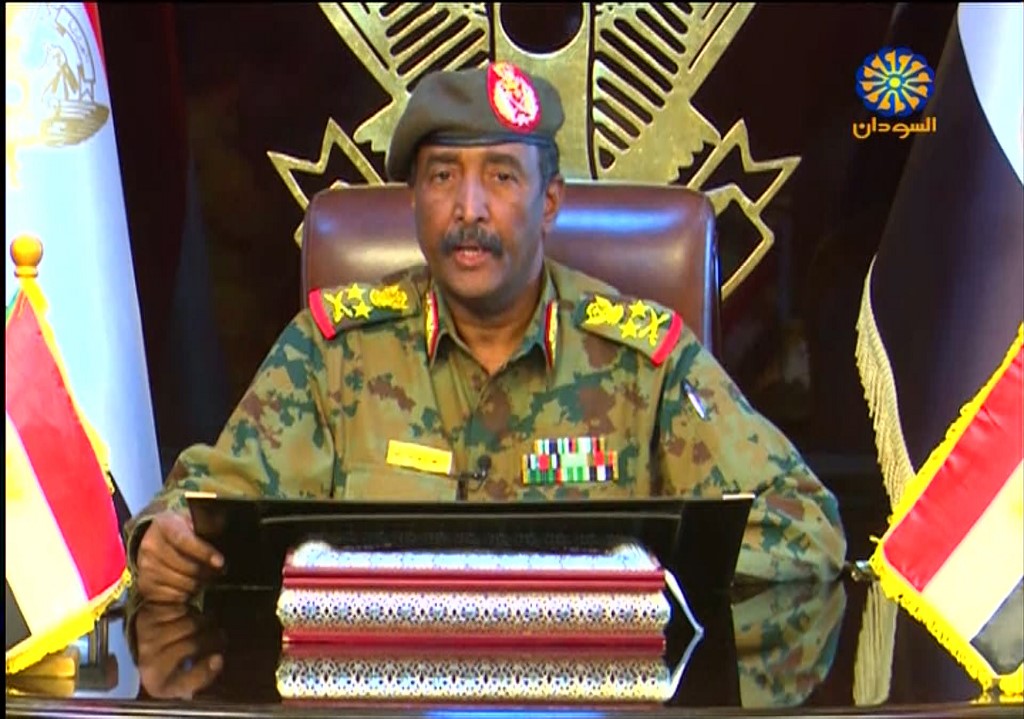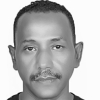Tasgut bas (just fall, that’s all), a slogan chanted by Sudanese revolutionaries since 19 December, became a reality on 11 April, when Omar al-Bashir - Sudan’s president for three decades - was ousted in a military coup.
There was a uniquely festive atmosphere among the public prior to the official announcement, but mass disappointment prevailed as Defence Minister Awad Mohamed Ahmed Ibn Auf simultaneously suspended Sudan’s constitution, announced a three-month state of emergency and imposed a 10pm curfew.
The Sudanese Professionals Association (SPA), which has taken the lead in organising demonstrations, urged protesters to resume the sit-in they started on 6 April outside the country’s army headquarters in Khartoum. Amid the ensuing protests, Ibn Auf stepped down on 12 April.
Threatened by the deep state
Ibn Auf’s successor, Lieutenant General Abdel Fattah al-Burhan, will now lead the Transitional Military Council. “I am confident that he will steer this ship that has sailed to safety,” Ibn Auf said in announcing the handover.
While the statement was met with joy, the sit-in continued, as protesters did not want to risk having their revolution stolen.
Persecuted and voiceless, most parties had little active role while the totalitarian NCP regime was in power
With two leaders toppled in less than 48 hours, Sudan’s fluid security landscape is threatening the country’s overall stability. The deeply rooted, clandestine government remains the biggest threat to the country’s wide strides towards democratic change and freedom. The deep state - founded on the tears, sweat and blood of its opponents - constitutes a politically hazardous environment.
Demands raised by opposition forces include holding ousted government figures accountable for war crimes, corruption, custodial deaths, and other major atrocities and human rights violations.
Major economic institutions and commercial activities were under the exclusive control of Bashir’s National Congress Party (NCP). Parallel armed forces were created to protect the regime, with former Vice President Ali Osman Mohamed Taha in January referring to the existance of “shadow troops” behind the scenes to defend the NCP’s rule.
Anti-democracy forces
The anti-revolution, anti-democracy forces that still occupy strategic positions in the public and private sectors also pose a high risk. In the online sphere, groups known as “electronic jdad”, the Sudanese equivalent of electronic trolls, have spread false news and rumours aimed at weakening the revolutionary forces; they have attempted to undermine public confidence in the SPA, targeting the association via social media.
Despite these efforts, civilians have still been responding en masse to the SPA’s calls for protests. The time factor is crucial in Sudan’s volatile political situation.

The sit-ins appear to be a useful tool to levy political pressure - but this also raises the question: are Sudan’s political parties ready for the battle ahead? Answering this requires taking a closer look at those involved.
Sudan’s political scene encompasses three main groups: opposition parties that helped to lead the peaceful resistance, such as the Sudanese Congress Party; parties that participated in the NCP’s “national dialogue” process but called on the government to step down after protests broke out, such as the Umma Party and the Reform Now Movement; and those who remained in line with the now-ousted government, such as the Popular Congress Party.
Persecuted and voiceless, most parties had little active role while the totalitarian NCP regime was in power. The coup represents a radical shift in this arrangement, and it will require time for parties to adapt.
National priorities
On the ground, political parties must assert their authority and ideology as soon as possible, with an emphasis on national priorities. Rather than focusing on the crimes committed by the NCP, they must develop a clear vision for the future. As soon as the government is formed, it will be tasked with studying all democratic options pertaining to transitional justice.
The right to a civil government must be front and centre, as the sole demand of protesters, before the Transitional Military Council resumes negotiations from the presidential palace.
Political powers must present clear plans of action and reform programmes, including detailed economic initiatives. The involvement of SPA technocrats in drafting new policies in sectors such as healthcare and the economy could speed up the process of institutional reforms.
A plan of action should explicitly be agreed upon before its presentation to the military council. A complicated mission awaits Sudan’s political parties, and they must unite around this common purpose before it is too late.







